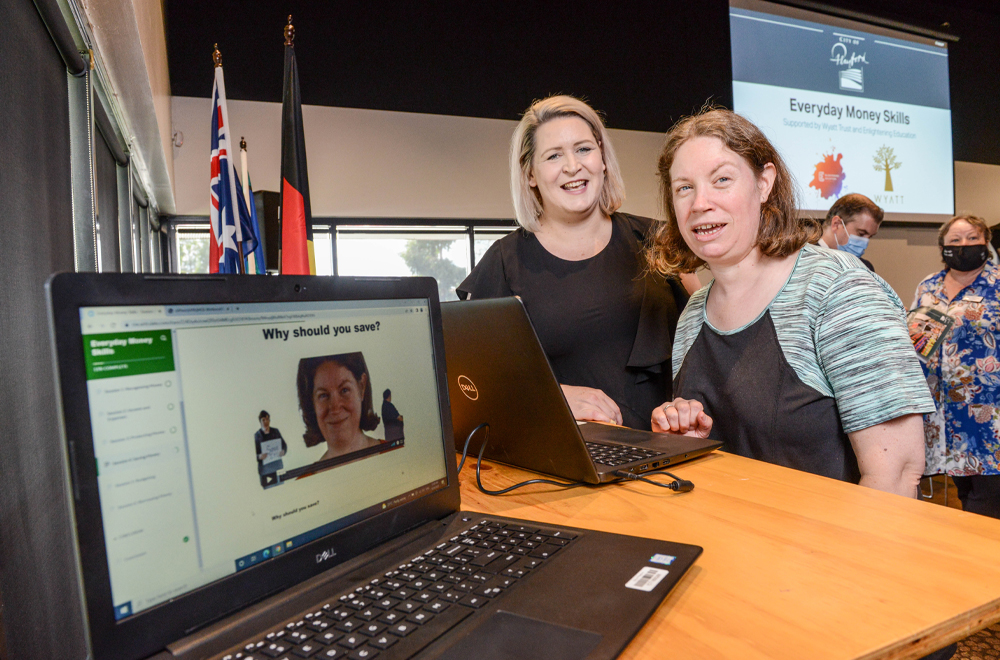People with an intellectual disability across Australia can now access a new online learning platform that teaches them how to use money safely.
The interactive website is free and a first of its kind to be developed by a South Australian council.
Created by the City of Playford, Everyday Money Skills leverages peer support using films of real-life scenarios featuring people with disability experience.
Learners are taught the “dos and don’ts” of shopping, avoiding scams, checking change, dealing with banks and how to seek financial advice.
The online platform will benefit NDIS providers, schools, support agencies and trainers and can be used for one-on-one or group sessions.
Trainers, teachers or support workers guide learners through six interactive modules which include Recognising Money, Income and Expenses, Protecting Money, Saving Money, Budgeting and Borrowing Money.
Everyday Money Skills was launched by Playford Mayor Glenn Docherty who said the package builds the confidence of people with an intellectual disability so they can become active and independent members of the community. As well as local residents, the tool is available to people throughout Australia.
“Users will learn different ways to save and budget. They will find out the importance of prioritising spending their money on items they need rather than want, dealing with text and email scams and keeping their cards and cash safe,” he said.
The website launch followed a 12-month trial involving 20 members of the Playford Friends Group with an intellectual disability. The learning platform is designed to be run by a trainer who provides support and reviews progress.
Learners are shown how to deal with everyday scenarios, including buying items at a shop, identifying different denominations of bank notes and coins and checking they have the correct change, as well as the cost of common foods, what they can buy for $100 and how to save for goods they want. The level of support will vary depending on the needs of the learner.
Videos, graphics, illustrations and photographs are used to highlight key points. To support different working styles, participants answer questions using “drag and drop” icons and via multiple-choice.
The concept was inspired by a Flinders University pilot program and expanded and refined with input from residents with an intellectual disability and educators.
According to Docherty the package has huge potential.
“We are receiving positive feedback from young people and people with low literacy levels who are now trialling the package. The website could also help people from culturally and linguistically diverse backgrounds understand and use money,” he said. “It is a learning platform that could expand to other areas of support for people with disability, including showing how to be a good housemate, building relationships and employment readiness.”
The project cost $20,000 and has been funded by the Wyatt Trust, which seeks to address social disadvantage. It was also supported by business Enlightening Education who helped create the package.
Everyday Money Skills can be accessed on the City of Playford website:
www.playford.sa.gov.au/everydaymoneyskills
Caption: Community Services Officer City of Playford, Cyndi Neuzerling, with Playford Friends Group member Verity Chattaway at the launch of the website.

